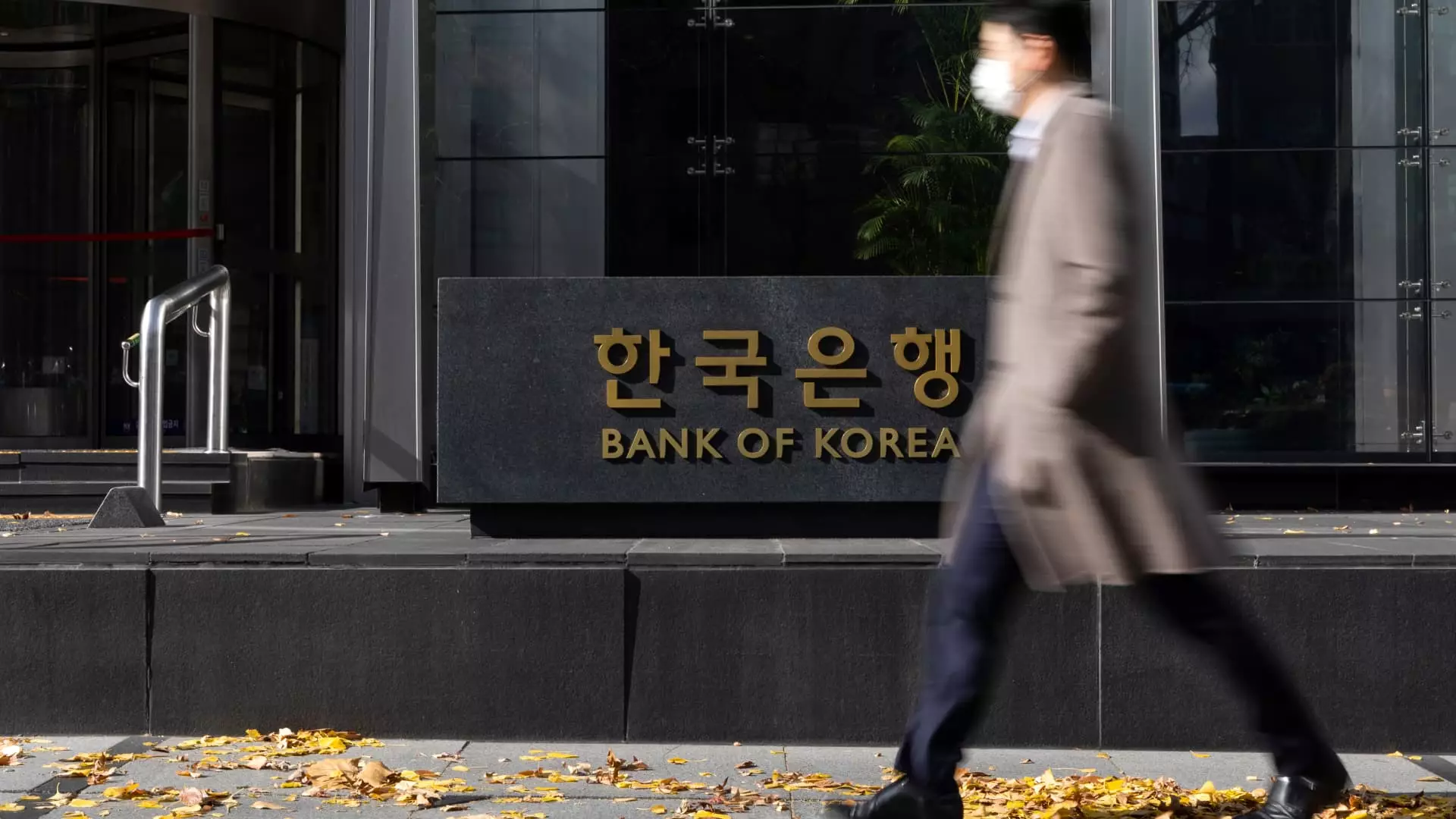In a move that has caught many analysts off guard, the Bank of Korea (BOK) has decided to reduce the benchmark interest rate by 25 basis points, marking the second consecutive cut within a matter of weeks. This decision, made on Thursday, signals a proactive approach by the central bank as it seeks to stimulate a sluggish economy that is grappling with subdued growth levels. The last alteration occurred in October, when rates were similarly trimmed, highlighting a pattern of intervention not seen since the global financial crisis in 2009.
Economic Performance Below Expectations
The impetus behind this rate cut can be traced to the recent GDP report, which revealed a year-on-year growth rate of only 1.5% for the third quarter—significantly below the 2% growth that many economists had anticipated. As a result, the BOK has revised its outlook for economic expansion, lowering its forecast for 2024 from 2.4% to 2.2% and also adjusting the projections for 2025 from 2.1% to 1.9%. This adjustment illustrates that the central bank must respond decisively to the prevailing economic climate, characterized by a worrying trend of underperformance.
Inflation Trends and Economic Pressures
Despite the bleak growth outlook, the BOK’s latest statement emphasized that inflation within South Korea has shown signs of stabilization. The most recent inflation rate stood at 1.3% for October, marking its lowest level since February 2021. While this may seem like a relief for the central bank, the larger context reveals heightened economic pressures that continue to besiege the country. The BOK acknowledged that the forces weighing down the economy have intensified, necessitating further rate cuts to combat potential downside risks.
Adding complexity to the situation is the ongoing depreciation of the South Korean won. Economists had speculated that this declining currency might deter the central bank from further rate cuts, particularly given its recent drop to a two-year low against the U.S. dollar. The recent statements from BOK Governor Rhee Chang-yong indicate that the rapid decline of the won is a significant factor influencing the BOK’s decision-making process. He expressed concern over the speed and extent to which the currency has weakened, suggesting that macroeconomic stability hinges on managing this decline.
As the BOK navigates these turbulent economic waters, the recent interest rate cut may be indicative of a more aggressive stance in fiscal policy aimed at supporting growth. Economists and investors will be closely monitoring further actions and statements from the central bank as it balances the twin challenges of promoting growth while ensuring financial stability. The embedded uncertainty surrounding global economic conditions and domestic challenges demands vigilant oversight and strategic decision-making as South Korea seeks to bolster its economic trajectory in a competitive environment.

Leave a Reply